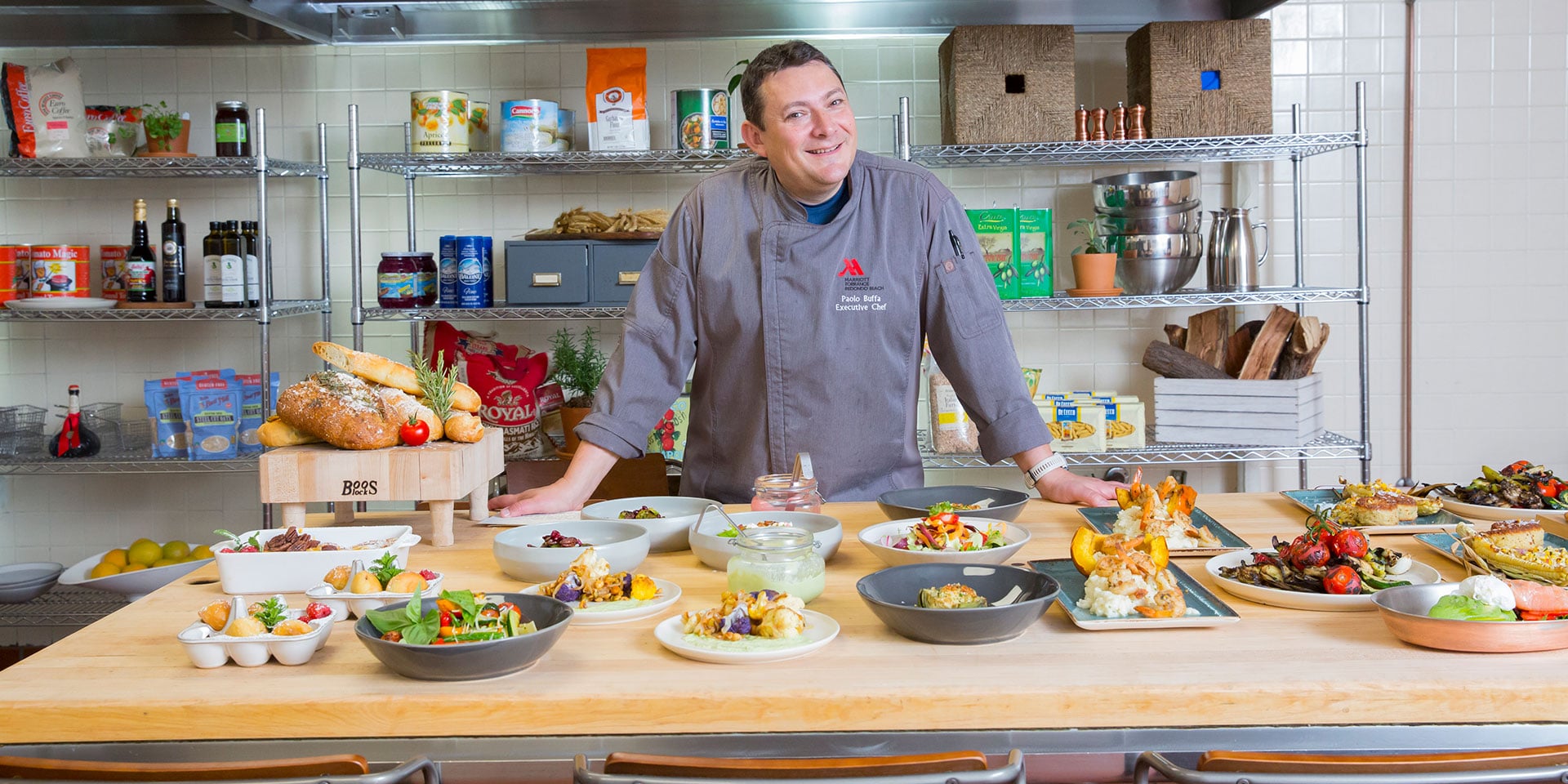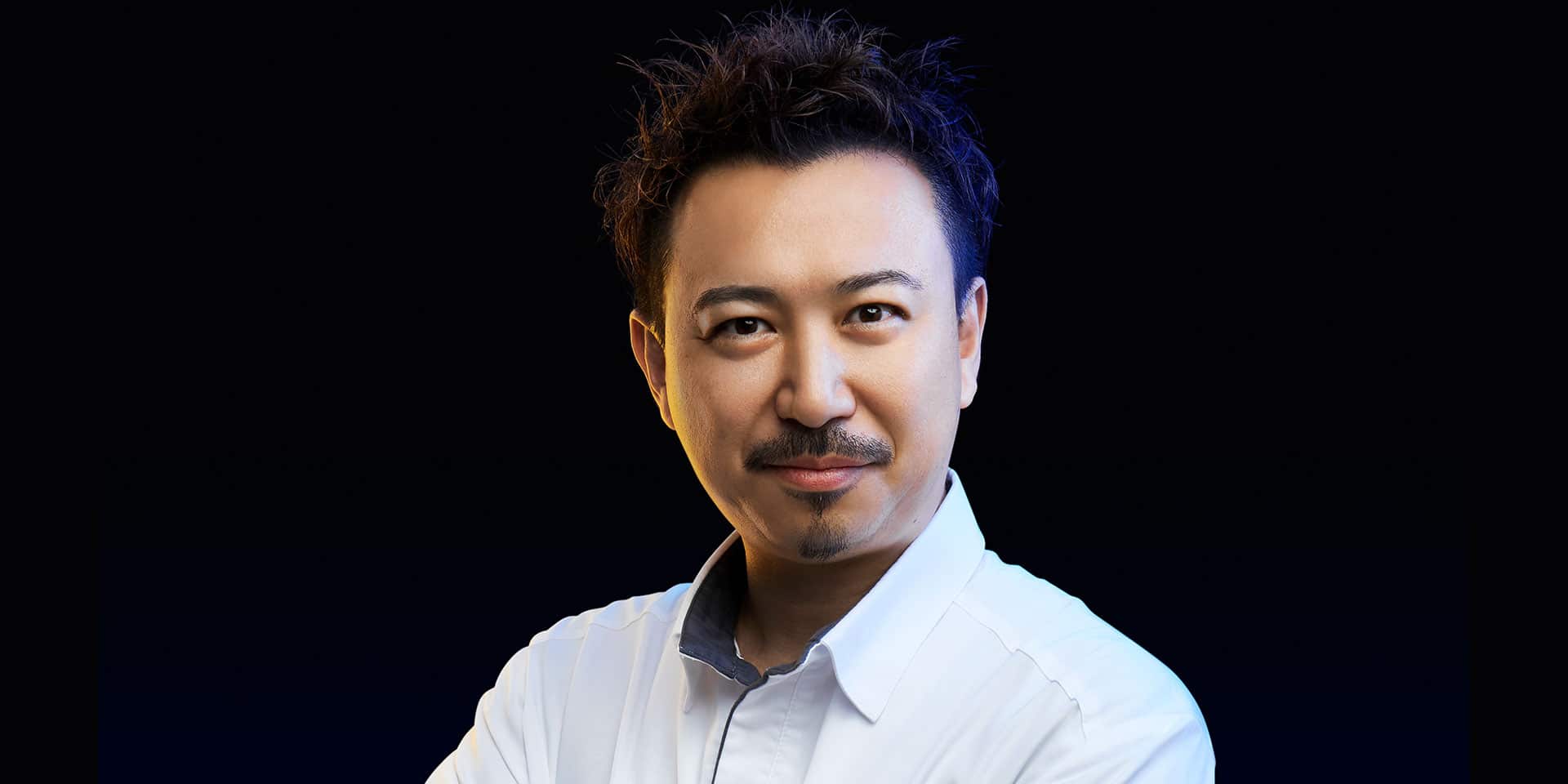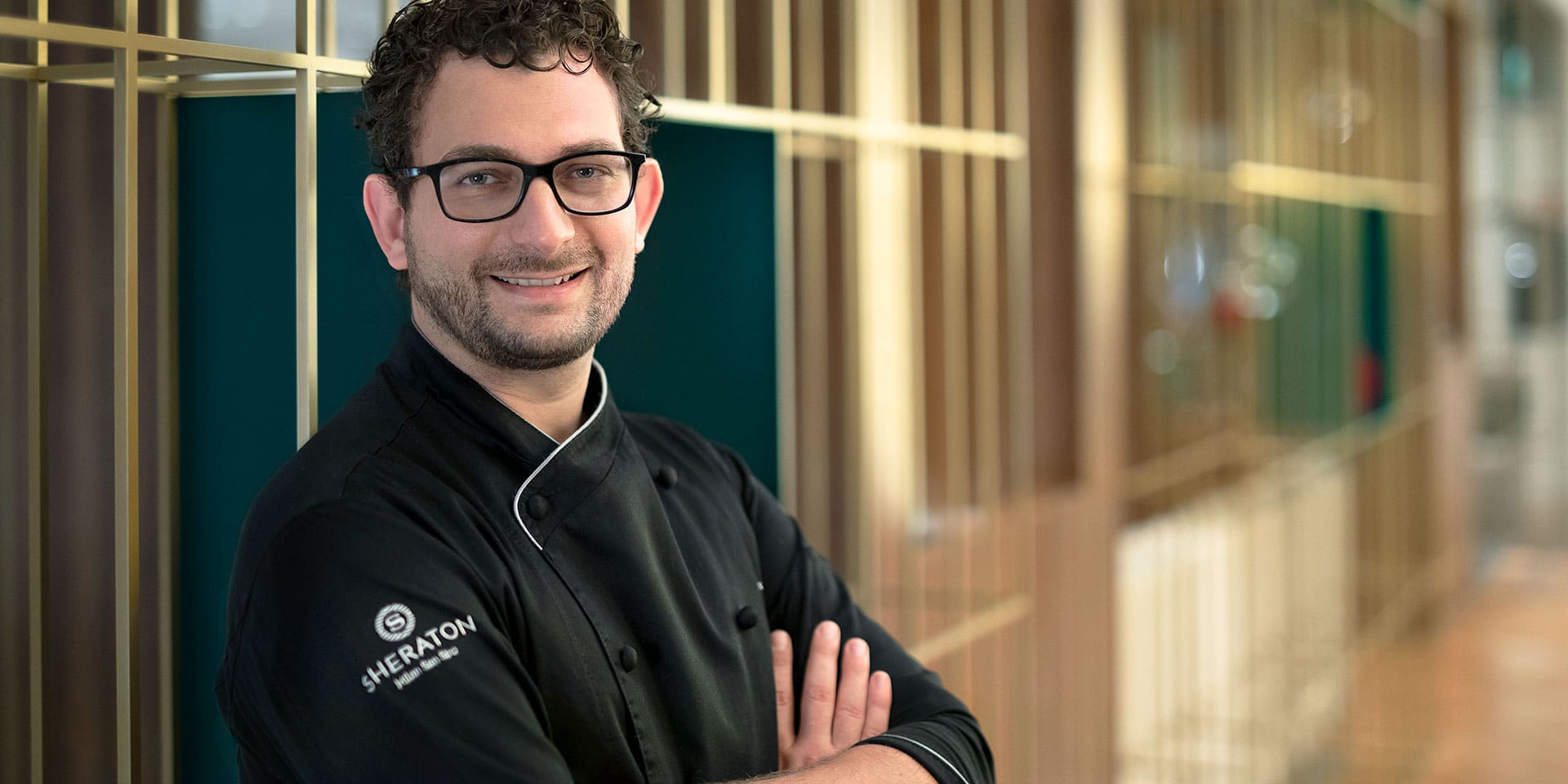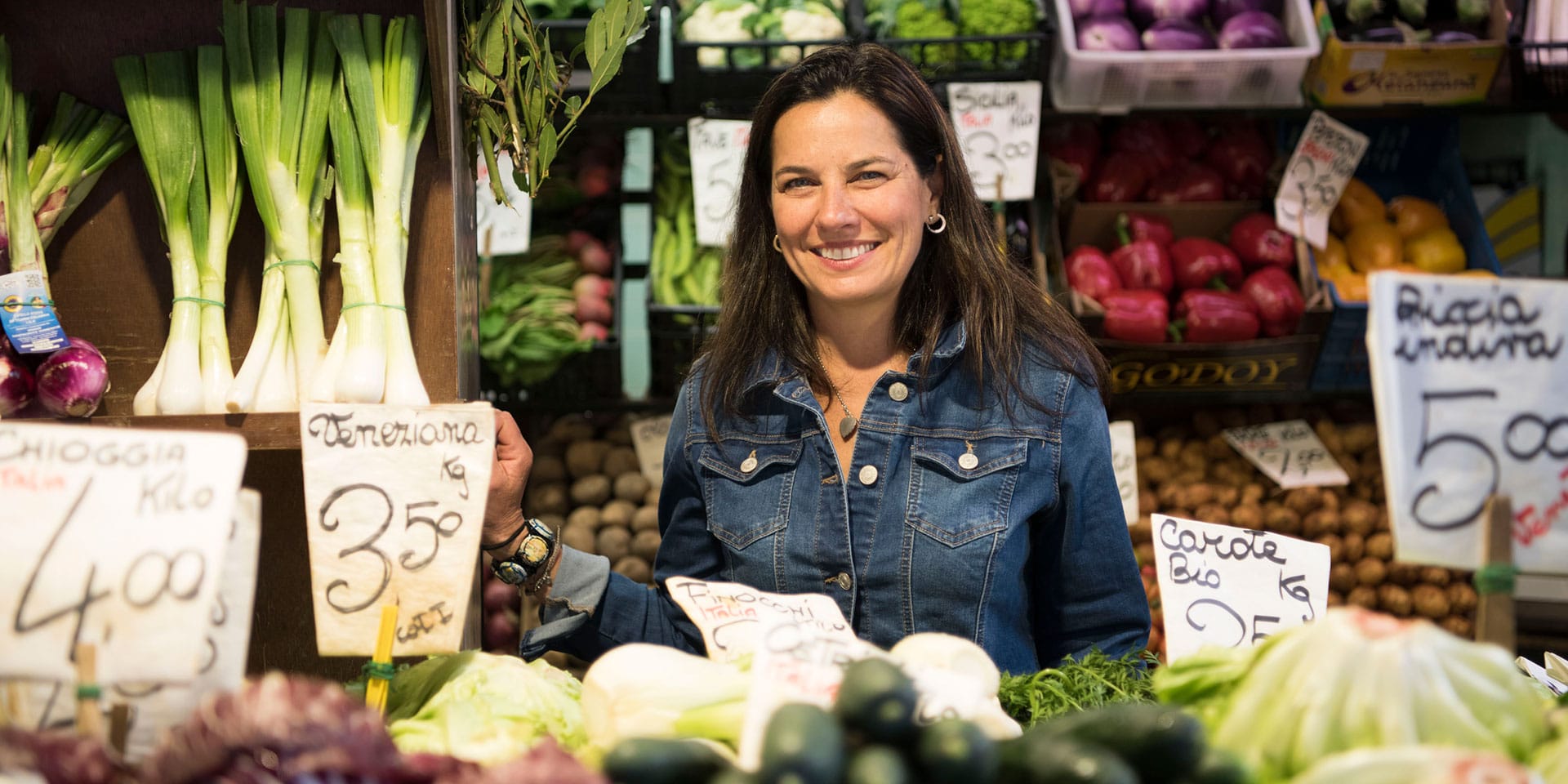
Chef Melissa Kelly visits a produce market in Venice. (Photo: Marriott International)
Chefs You Should KnowChef Melissa Kelly on Homegrown Ingredients, Building a Primo Empire and Her Italian Roots
By Valerie ConnersWhen Chef Melissa Kelly traveled to Sicily, she was struck by a phrase she repeatedly saw scrawled in graffiti around the island, which locals told her translated to “shaken lives,” a reference that at first might appear to be a nod to volcanic eruptions from Mount Etna.
But the restauranteur dug a little deeper and learned that the phrase’s true meaning for Italians, and Sicilians in particular, implies that everything they do, they do the hard way, the old-fashioned way — and in Kelly’s view, the results are, from a culinary lens, better.
“They grow their wheat; they mill their wheat; they make the wood fire; then they make their bread. The same thing for the pasta. Everything’s made by hand. They grow it; they appreciate it,” says Kelly. “There’s just a different respect for food, and that makes you not want to waste anything. When you see how hard it is to get to the end result, you want to really relish it.”
The two-time James Beard Award–winning chef owns and runs her flagship farm-to-table restaurant, Primo, in Maine, as well as two other outposts of the restaurant at JW Marriott Orlando, Grande Lakes and JW Marriott Tucson Starr Pass Resort & Spa.
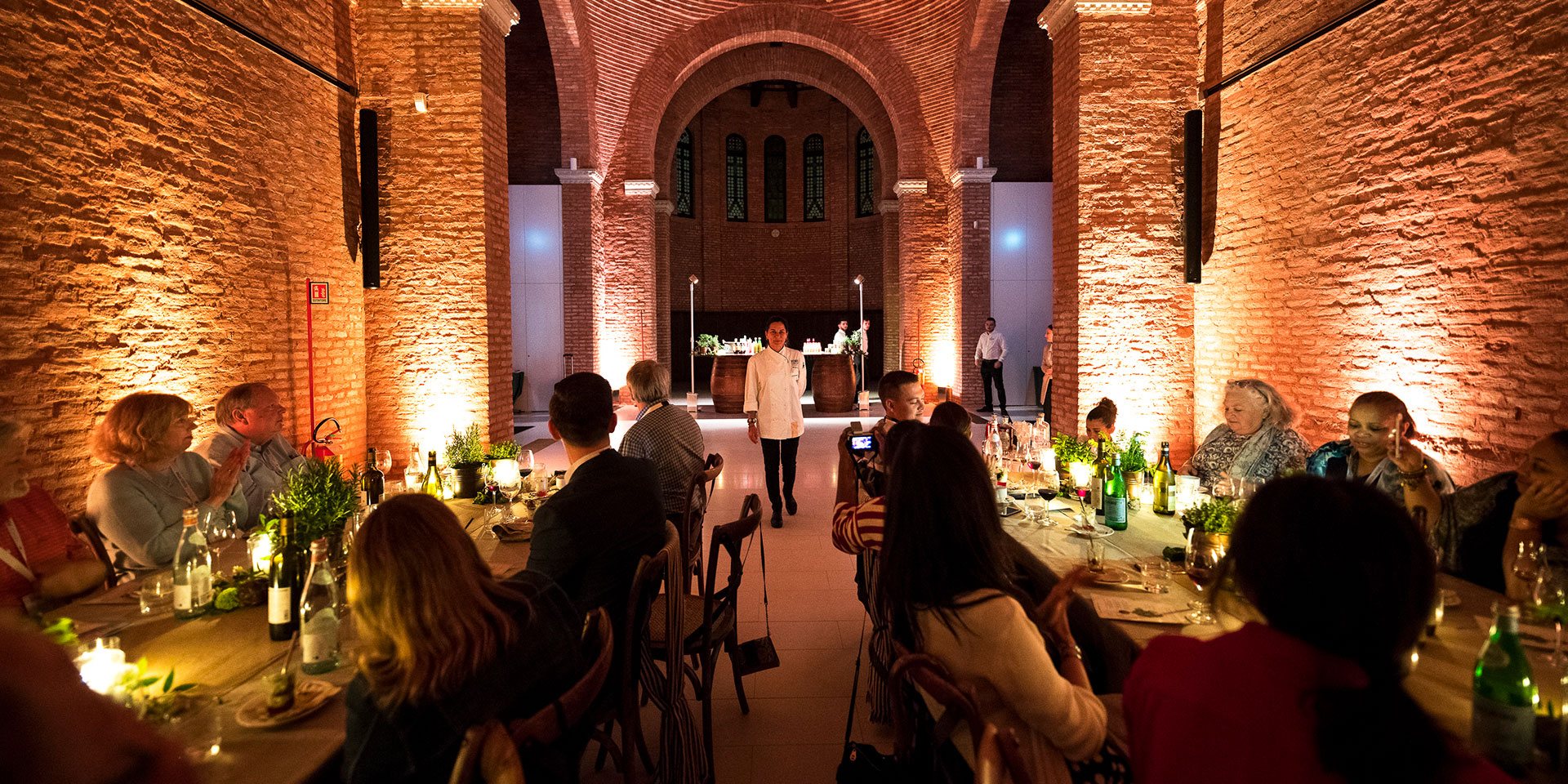
“[In Italy] it seems like people enjoy life, and you go sit at the table with someone and it’s not just about let’s go eat. It’s like, let’s go have an experience; let’s enjoy each other; let’s take some time,” says Kelly. “Family and food are so intertwined. I think food is like the ribbon that ties people together.”
Marriott Bonvoy Traveler sat down with Kelly to chat with her about Primo’s origins, her farm-to-table philosophy and the incredible reason she wound up fishing in a Venetian canal at one in the morning.
Can you share a little more about the beginnings of your restaurant and how you thought to create Primo?
I had been working at a dairy farm, Old Chatham Sheepherding Company, and kind of dreaming of having my own restaurant at the same time. Then I moved up to Maine and bought a piece of property; it’s across from the Penobscot Bay.
We have five acres, so it was my dream to put up a greenhouse and start a garden and get some animals — chickens and pigs and some beehives. It’s the way I grew up, similar to that. I always really wanted to cook that way, that close to the land and close to the product.
Now it’s 19 years later, so it’s expanded and grown. Now I have two greenhouses. We started with two pigs; now we have 16 pigs.
It was originally 50 seats, and now it’s 150 seats. We actually added three levels: a basement, which is offices and a meat-butchering room, then the second floor is a large dining room. Upstairs is, we call it “the counter.” We have a chef or two working there, and it features all the charcuterie we make from our pigs, some local cheeses and small plates.
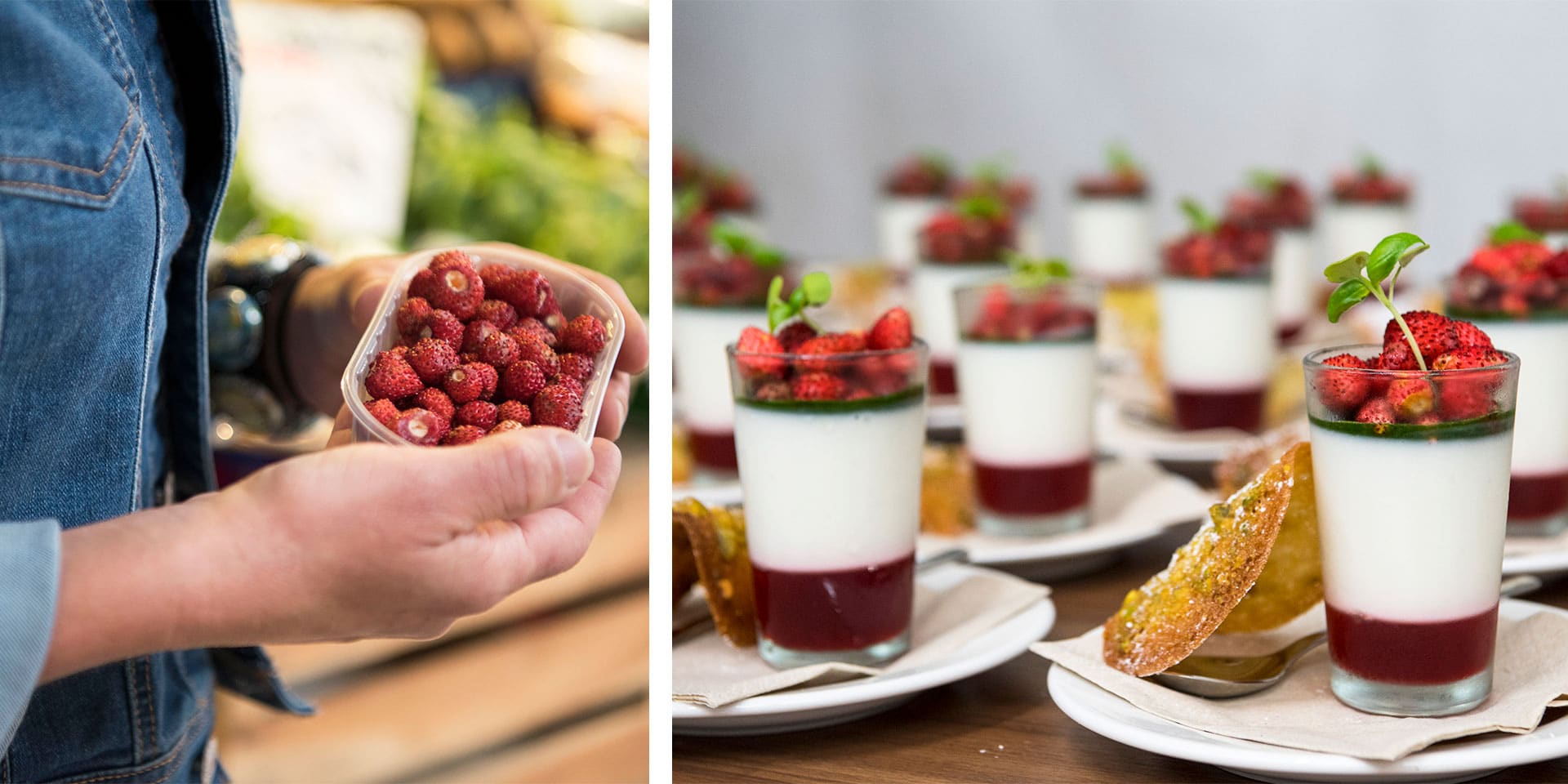
Tell us how your restaurant maintains its commitment to the land and the ingredients you grow and raise on property.
Because we grow our food and I want it to be as tasty and as nutritious as possible, and because we raise the animals, we get very connected to them.
Where you park, where the employees park, they have to walk through the whole garden to get to the restaurant, and they pass the pigs, and they pass the chickens. I encourage them to give belly rubs, and the reason being is because a happy pig is a tasty pig.
Chickens that can roam on grass and eat and peck and scratch, they’re kind of working for me, but they’re having a very happy life versus a conventionally raised bird that’s in a cage that never sees the light of day, never sees grass.
Just think about how depressed you would be if that was you. Our food is something we nourish ourselves with, and I feel like it’s my responsibility.
How is that mindset translated to your guests’?
Instead of just going and looking at a menu and having dinner, they might say, “Oh, I saw this beautiful lettuce out there. I’m going to try this salad.” Or, “I saw the gardener harvesting beets,” or whatever it may be, but to create that whole experience, for me as a cook, we get all the value-added products.
Like if cilantro goes to seed, it makes this beautiful flower that’s also delicious. Then it makes a little, tiny coriander, green coriander, which you can’t buy. You can never buy that; no one sells it. We pickle them, and we put them in fish dishes, and so it’s all these little secrets that come from doing it. Value-added products.
You’ve expanded the restaurant now to Orlando and Tucson. How do you take that same experience to those very different locations?
A couple ways that we try and create the Primo culture in the JW Marriott brand is my managers and my chefs come to me and spend some time with me. The management teams at the hotels have been to Primo in both hotels so they understand exactly what the culture is.
Then we have this amazing garden in Orlando. We actually have a small farm there where we raise quail and chicken, and we collect eggs every day. They’re growing hops and microgreens and lettuces and vegetables and citrus, things I can’t grow in Maine, then partnering with other farmers locally in the area.
We do the same thing in Tucson. In Tucson, we get to grow other things like figs and artichokes and persimmons and pomegranates, and I could never grow those things in Maine.
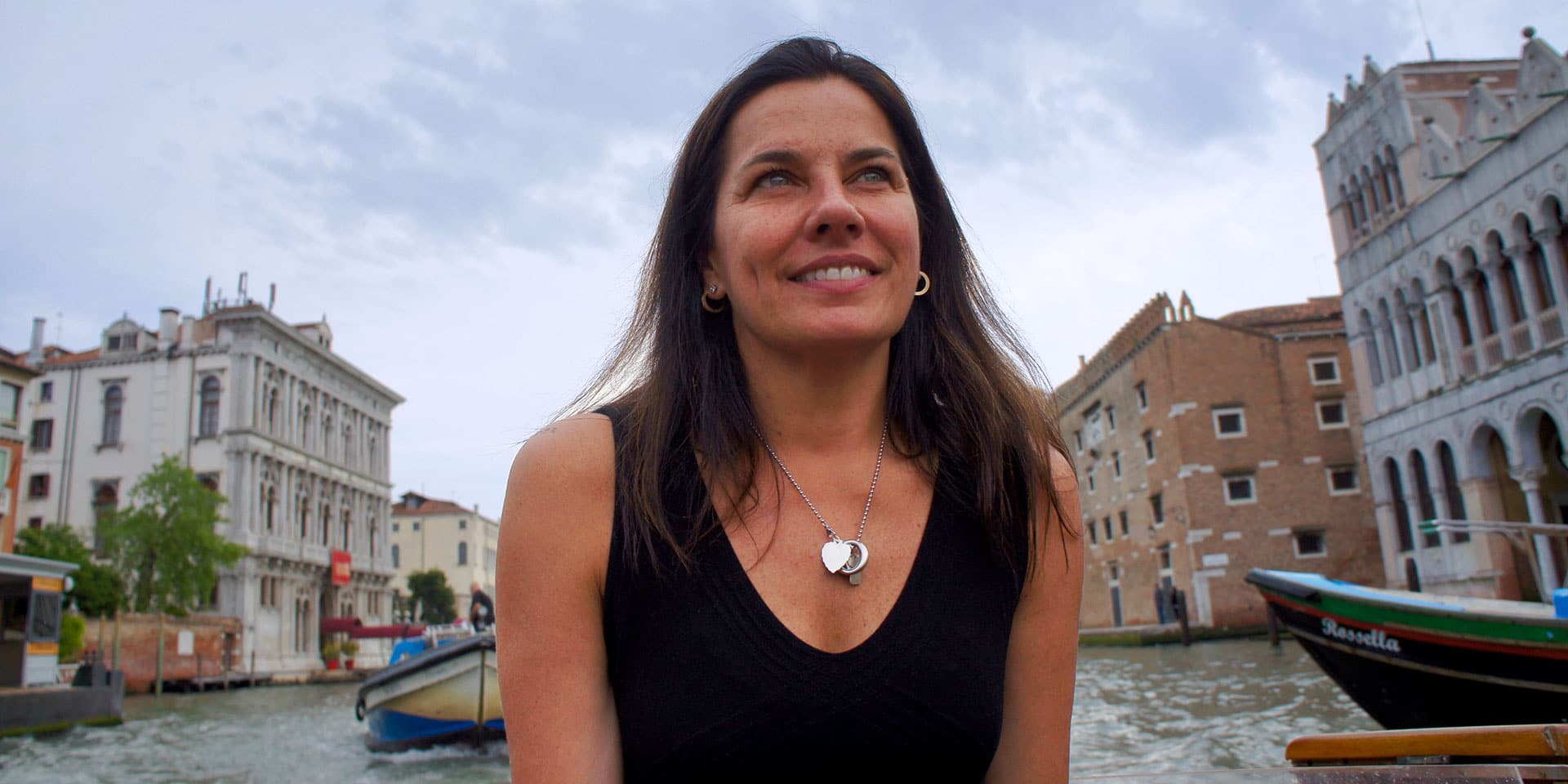
So it’s beautiful for me to travel in the wintertime and work with these other products and the other teams. I’ll go spend time, we’ll work on new menu items, I’ll work with the gardeners [and] I’ll work with the manager on the wine list and the cocktails. Then I’ll work with the chefs on the menu and the food and the recipes, and so it’s fun for me.
You’ve also talked about your travels, and that you kind of have some Italian roots. What is it like to travel through the country?
Yeah, Italy feels like home to me. I grew up in a very Italian-American family, but my grandfather’s name was Primo Mignoni, and he was a butcher, and I come here and I listen. He spoke Italian, so I hear the language and the music that he listened to and it just, it takes me back home.
Then the flavors are so simple, and they’re so pure, and the ingredients are so wonderful, and I appreciate the lifestyle so much here, and it’s inspiring. I go home, and I try and take a piece of that with me.
Do you have a favorite food memory or travel memory from Italy?
A friend of mine, who’s Italian, was driving with us and showing us different wineries and cheese places and pasta makers. When we got to Venice, he recommended that we go to this one restaurant, by Mauro Lorenzon, it’s called Enoiteca Mascareta.
As soon as we walked in, [Lorenzon] was making risotto at the bar, and he’s got the funniest two different color pants, two different color shoes, crazy buttons. He gave me this bracelet, which is made from Champagne caps and all limited edition. They make Champagne, this really beautiful, very dry, yeasty Champagne.
He brought a magnum to our table, poured it and then he was drinking it out of the bottle. After dinner he invited us downstairs to his cantina, where it was like a little secret room.
It was a round room full of wine bottles with a table in the center, and you had to crawl down to sit on the bench, and then he opened the door and we were sitting on the canal. I mean, it was literally, you could put your hand in the canal. He had a fishing line, and he was trying to catch fish while we were sitting there drinking wine at one in the morning. It was pretty amazing.





